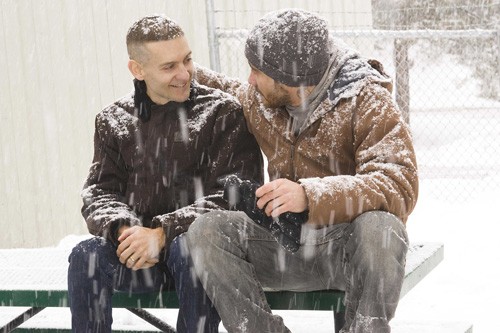In adapting Susanne Bier and Anders Thomas Jensen’s original Danish screenplay for an American audience, it’s easy to imagine that director Jim Sheridan would be stumped.
Under Bier’s artful direction, “”Brødre”” (2004) tells the story of one man’s horrific experience as a prisoner of war, paralleled with that of his family who believe him dead. His unexpected return paired with his leftover guilt and paranoia set into motion a tragic ripple effect, which Bier presents in an appreciatively raw, undramatic way.
Sheridan’s decision to remake “”Brødre”” only five years after its release seems merely like a decision to translate and recast the film in order to market it more broadly. Indeed, in his hands “”Brothers”” (2009) changes very little except to become a tightly woven series of tensions rather than a story — and one weighted down with generic American images, at that.
Beginning simply with the pickup pulling into the driveway, the remake’s reliance on archetypes emerges. From the white-sided house to the floral seat cushions tied to the kitchen chairs, every image seems to have been selected with Middle America in mind. The hardware store’s “”save our fallen soldiers”” sign is cliché, and the carrot-nosed snowman whose construction gives rise to one of many niece-uncle bonding scenes is even worse. Even the unfinished kitchen — the remodelling of which is symbolic of both father Sam Cahill’s (Tobey Maguire) absence and uncle Tommy Cahill’s (Jake Gyllenhaal) willingness to step in — is packed with American-dream granite and stainless steel when complete.
What’s worse is that this purge of specificity takes the just-right relationships of “”Brødre”” and pares them down to sketches in the American version. The wife in “”Brødre”” sticks her toothpaste-y tongue out in amusement when her husband tries to kiss her mid-brush. In “”Brothers,”” however, she becomes an ex-cheerleader whose ex-quarterback husband kisses her standard-issue rosy lips hard — but not quirkily — before going to war.
Despite the solid acting throughout both renditions, the elimination of the idiosyncrasies that helped “”Brødre”” hit home makes “”Brothers”” less relatable and its characters more apt to inspire resentment for the stereotypes they represent than empathy.
But “”Brothers”” does, in all its inattention to detail, tie together the already excellent story tighter. Bailee Madison nails the role of daughter Isabelle, whose frustration is played up to great effect, triggering her father’s inevitable breakdown. More importantly, Sheridan’s decision to portray the brothers’ father Hank (Sam Shepard) as an abusive alcoholic and Vietnam veteran does wonders to flesh out the American melodrama set-up.
Aided by the two-dimensionality of its characters, “”Brothers”” manages more uniformity and tightness than its predecessor, but, in doing so, the film loses both its toothpaste and its grit.









